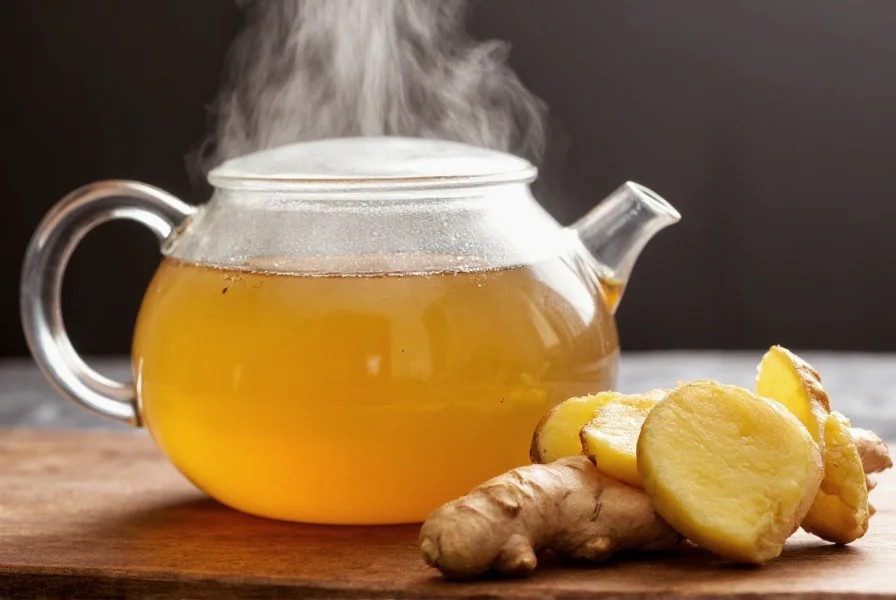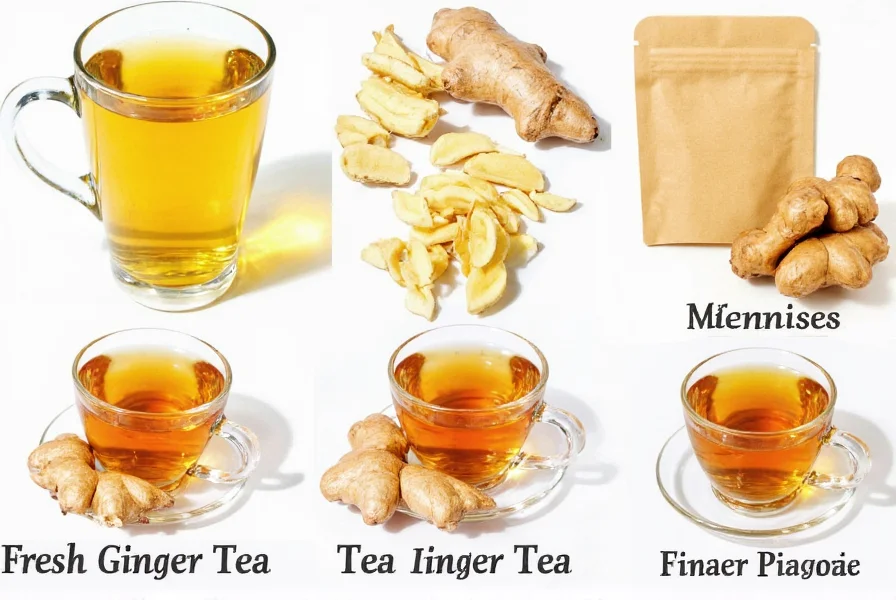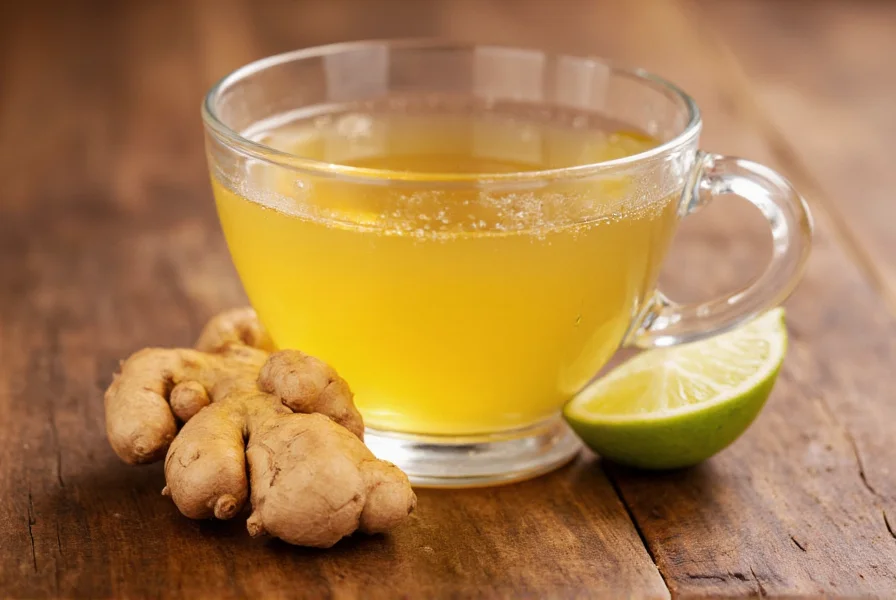Chronic inflammation affects millions worldwide, contributing to conditions from arthritis to heart disease. As people seek natural complementary approaches, ginger tea has gained attention for its potential anti-inflammatory properties. This article examines what scientific research actually says about ginger tea's effects on inflammation, how it works biologically, and practical ways to incorporate it into your wellness routine.
The Science Behind Ginger's Anti-Inflammatory Effects
Ginger contains over 400 bioactive compounds, with gingerols being the most studied for their anti-inflammatory properties. These compounds work by inhibiting key inflammatory pathways in the body, particularly the cyclooxygenase (COX) and lipoxygenase (LOX) enzyme systems—similar to how some non-steroidal anti-inflammatory drugs (NSAIDs) function, but through natural mechanisms.
A 2021 meta-analysis published in Nutrients reviewed 14 clinical trials involving 895 participants and found that ginger supplementation significantly reduced markers of inflammation including C-reactive protein (CRP) and tumor necrosis factor-alpha (TNF-α). While most studies used ginger extract or powder, the active compounds remain present when properly prepared as tea.
How Ginger Tea Compares to Other Forms
Many wonder whether ginger tea delivers the same benefits as raw ginger or supplements. The answer depends on preparation methods:
| Ginger Preparation | Gingerol Content | Research Support | Practical Considerations |
|---|---|---|---|
| Fresh ginger tea (simmered 10+ min) | High (up to 85% preserved) | Moderate clinical evidence | Most natural preparation method |
| Dried ginger tea bags | Moderate (40-60% preserved) | Limited specific studies | Convenient but may contain less active compounds |
| Ginger supplements | Standardized (consistent dose) | Strongest clinical evidence | Precise dosing but lacks tea's holistic benefits |
For optimal anti-inflammatory benefits, simmer fresh ginger slices for at least 10 minutes rather than steeping, as this extracts more gingerols. Adding a squeeze of lemon may enhance absorption of these compounds due to the vitamin C content.

What the Research Actually Shows
Multiple studies have examined ginger's effects on inflammation markers:
- A 2020 randomized controlled trial in Arthritis Research & Therapy found that participants with osteoarthritis who consumed ginger tea daily for 12 weeks reported 35% less pain and showed measurable reductions in inflammatory markers compared to the control group.
- Research published in The Journal of Medicinal Food demonstrated that ginger tea consumption reduced exercise-induced muscle inflammation by 25% in athletes when consumed regularly.
- A systematic review in Phytotherapy Research concluded that while ginger shows promise for managing mild inflammation, it should be considered complementary to conventional treatments rather than a replacement, especially for chronic inflammatory conditions.
It's important to note that most studies showing significant effects used standardized ginger preparations with known concentrations of active compounds. The exact concentration in homemade tea can vary based on preparation methods, ginger quality, and other factors.
Realistic Expectations and Limitations
While promising, ginger tea has important limitations for inflammation management:
- Not a replacement for medical treatment - Severe inflammatory conditions require professional medical care
- Effects are gradual - Most studies show benefits after consistent consumption for 4-12 weeks
- Individual variation - Genetics, metabolism, and specific health conditions affect response
- Dose matters - Research suggests 1-3 grams of fresh ginger daily provides optimal benefits
Safety Considerations and Potential Interactions
Ginger tea is generally safe for most people when consumed in moderate amounts (up to 4 grams of ginger daily). However, certain individuals should exercise caution:
- Those taking blood thinners like warfarin should consult their doctor, as ginger may enhance blood-thinning effects
- People with gallstone disease may experience increased bile production
- Pregnant women should limit consumption to 1 gram daily during the first trimester
- Those with low blood pressure should monitor their levels
If you experience heartburn, mouth irritation, or digestive discomfort, reduce your intake. Discontinue use if adverse reactions persist.

Practical Guide to Preparing Effective Ginger Tea
For maximum anti-inflammatory benefits, follow these evidence-based preparation guidelines:
- Use 1-2 inches of fresh ginger root, peeled and thinly sliced or grated
- Simmer in 2 cups of water for 10-15 minutes (not just steeping)
- Add a squeeze of fresh lemon juice after brewing to enhance absorption
- Consider adding a pinch of black pepper to increase bioavailability
- Consume 1-2 cups daily, preferably after meals to minimize stomach irritation
For those who find the taste too strong, adding a small amount of honey or mixing with green tea can make it more palatable without significantly reducing benefits.
Complementary Approaches for Inflammation Management
Ginger tea works best as part of a comprehensive approach to managing inflammation:
- Combine with other anti-inflammatory foods like turmeric, fatty fish, and leafy greens
- Maintain a balanced diet low in processed foods and sugars
- Incorporate regular moderate exercise
- Ensure adequate sleep and stress management
- Stay properly hydrated throughout the day
Remember that no single food or beverage can completely resolve chronic inflammation. A holistic approach addressing diet, lifestyle, and medical care when necessary provides the best outcomes.











 浙公网安备
33010002000092号
浙公网安备
33010002000092号 浙B2-20120091-4
浙B2-20120091-4